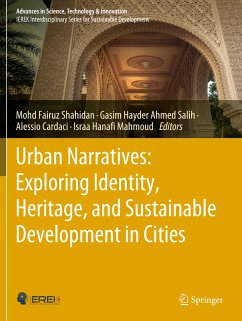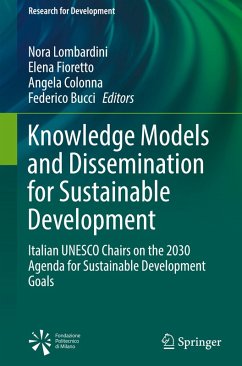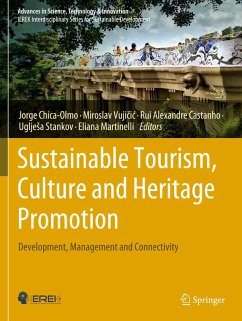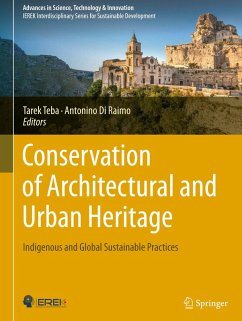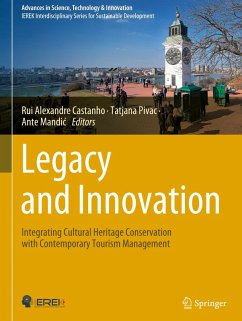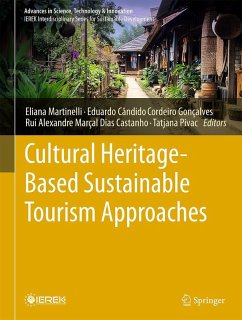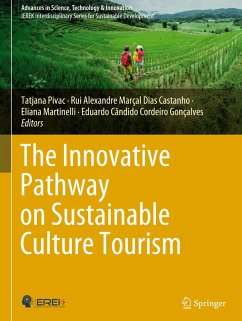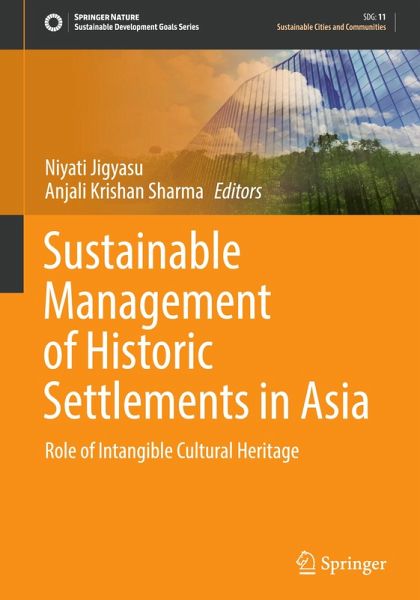
Sustainable Management of Historic Settlements in Asia
Role of Intangible Cultural Heritage
Herausgegeben: Jigyasu, Niyati; Sharma, Anjali Krishan

PAYBACK Punkte
76 °P sammeln!
The book addresses the contribution of Intangible Cultural Heritage to the sustainable management of historic cities and towns. Through the unique, diverse, and dynamic illustrations from Asia, it provides insights into the interrelationships of intangible and tangible cultural attributes and their significance on the sustainability of these areas. Historic cities and towns, large and small, along with their natural and man-made environments have a distinct identity and embody the values of traditional urban cultures. Evolved by tangible built forms and intangible elements, as cultural practic...
The book addresses the contribution of Intangible Cultural Heritage to the sustainable management of historic cities and towns. Through the unique, diverse, and dynamic illustrations from Asia, it provides insights into the interrelationships of intangible and tangible cultural attributes and their significance on the sustainability of these areas. Historic cities and towns, large and small, along with their natural and man-made environments have a distinct identity and embody the values of traditional urban cultures. Evolved by tangible built forms and intangible elements, as cultural practices and expressions- meanings and values attributed to them, they are in a state of continuous change. The built environment acts as a 'place' or a 'site' where most of these expressions are shaped. These areas are significant for their social cohesion and economic stronghold that dates back over generations and centuries. Over the years, there have been many theoretical discussions about the interrelationships of tangible and intangible but is challenging to manage in practice, especially in historic urban areas. There is a lack of understanding of the complexity and pervasiveness of intangible values and their direct relationship with the physical structure of the town/city. This book strives to address the various challenges, emphasising the intricate relationships between the tangible and intangible aspects of historic cities in the Asian context.



